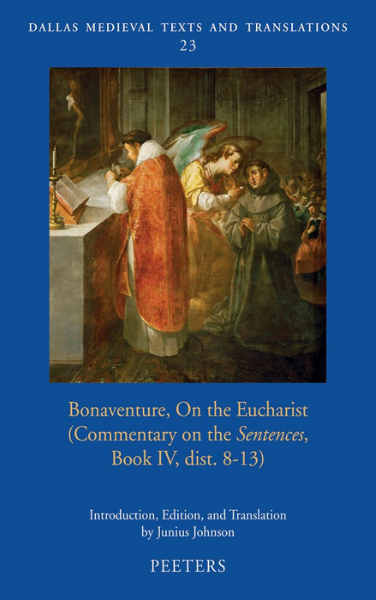Bonaventure On The Eucharist
Commentary on the Sentences,
Book IV, distinctions 8-13

Bonaventure On The Eucharist is a translation of the six questions from St. Bonaventure’s commentary on Peter Lombard’s Sentences that deal with the Eucharist. This translation makes this material available in English for the first time and includes the Latin text of the Quaracchi edition on the facing page. In addition, there is an introduction that places Bonaventure’s thought in context and explores the theological and philosophical content of these questions. This introduction is the most extensive scholarly discussion of Bonaventure’s Eucharistic theology extant. Scholarly footnotes and three indices round out this volume.
Table of Contents
Foreword
Acknowledgments
Introduction
Historical Context
A Brief Sketch of Bonaventure’s Life
The State of the Doctrine of the Eucharist
Date of Composition and Situation within Bonaventure’s Work
Bonaventure and Aquinas
The Theology of the Commentary
Distinction VIII
Distinction IX
Distinction X
Distinction XI
Distinction XII
Distinction XIII
Bonaventure’s Division of the Text
Notes on the Latin Text
Notes on the Translation
Style
The Translation of Scripture
Endnotes
Glossary
Selected Bibliography
